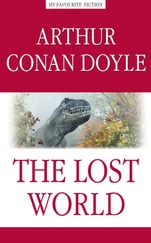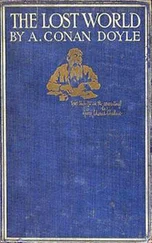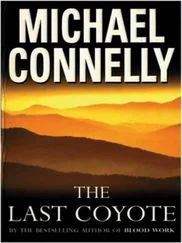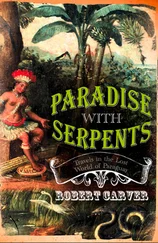Michael Crichton - The Lost World
Здесь есть возможность читать онлайн «Michael Crichton - The Lost World» весь текст электронной книги совершенно бесплатно (целиком полную версию без сокращений). В некоторых случаях можно слушать аудио, скачать через торрент в формате fb2 и присутствует краткое содержание. Жанр: Детская проза, на английском языке. Описание произведения, (предисловие) а так же отзывы посетителей доступны на портале библиотеки ЛибКат.
- Название:The Lost World
- Автор:
- Жанр:
- Год:неизвестен
- ISBN:нет данных
- Рейтинг книги:5 / 5. Голосов: 1
-
Избранное:Добавить в избранное
- Отзывы:
-
Ваша оценка:
- 100
- 1
- 2
- 3
- 4
- 5
The Lost World: краткое содержание, описание и аннотация
Предлагаем к чтению аннотацию, описание, краткое содержание или предисловие (зависит от того, что написал сам автор книги «The Lost World»). Если вы не нашли необходимую информацию о книге — напишите в комментариях, мы постараемся отыскать её.
The Lost World — читать онлайн бесплатно полную книгу (весь текст) целиком
Ниже представлен текст книги, разбитый по страницам. Система сохранения места последней прочитанной страницы, позволяет с удобством читать онлайн бесплатно книгу «The Lost World», без необходимости каждый раз заново искать на чём Вы остановились. Поставьте закладку, и сможете в любой момент перейти на страницу, на которой закончили чтение.
Интервал:
Закладка:
Harding said to Thorne, "I'm going to clean this out now. Hold his leg for me." More loudly, she said, "What didn't Darwin know, Ian?"
"That life is a complex system," he said, "and everything that goes along with that. Fitness landscapes. Adaptive walks. Boolean nets. Self-organizing behavior. Poor man. Ouch! What are you doing there?"
"Just tell us," Harding said, bent over the wound. "Darwin had no idea…"
"That life is so unbelievably complex," Malcolm said. "Nobody realizes it. I mean, a single fertilized egg has a hundred thousand genes, which act in a coordinated way, switching on and off at specific times, to transform that single cell into a complete living creature. That one cell starts to divide, but the subsequent cells are different. They specialize. Some are nerve. Some are gut. Some are limb. Each set of cells begins to follow its own program, developing, interacting. Eventually there are two hundred and fifty different kinds of cells, all developing together, at exactly the right time. Just when the organism needs a circulatory system, the heart starts pumping. Just when hormones are needed, the adrenals start to make them. Week after week, this unimaginably complex development proceeds perfectly - perfectly. It's incredible. No human activity comes close.
"I mean, you ever build a house? A house is simple in comparison. But even so, workmen build the stairs wrong, they put the sink in backward, the tile man doesn't show up when he's supposed to. All kinds of things go wrong. And yet the fly that lands on the workman's lunch is perfect. Ow! Take it easy."
"Sorry," she said, continuing to clean his wound.
"But the point," Malcolm said, "is that this intricate developmental process in the cell is something we can barely describe, let alone understand. Do you realize the limits of our understanding? Mathematically, we can describe two things interacting, like two planets in space. Three things interacting - three planets in space - well, that becomes a problem. Four or five things interacting, we can't really do it. And inside the cell, there's one hundred thousand things interacting. You have to throw up your hands. It's so complex - how is it even possible that life ever happens at all? Some people think the answer is that living forms organize themselves. Life creates its own order, the way crystallization creates order. Some people think life crystallizes into being, and that's how the complexity is managed.
"Because, if you didn't know any physical chemistry, you could look at a crystal and ask all the same questions. You'd see those beautiful spars, those perfect geometric facets, and you could ask, What's controlling this process? How does the crystal end up so perfectly formed - and looking so much like other crystals? But it turns out a crystal is just the way molecular forces arrange themselves in solid form. No one controls it. It happens on its own. To ask a lot of questions about a crystal means you don't understand the fundamental nature of the processes that led to its creation.
"So maybe living forms are a kind of crystallization. Maybe life just happens. And maybe, like crystals, there's a characteristic order to living things that is generated by their interacting elements. Okay. Well, one of the things that crystals teach us is that order can arise very fast. One minute you have a liquid, with all the molecules moving randomly. The next minute, a crystal forms, and all the molecules are locked in order. Right?"
"Right…"
"Okay. Now. Think of the interaction of life forms on the planet to make an ecosystem. That's even more complex than a single animal. All the arrangements are very complicated. Like the yucca plant. You know about that?"
"Tell me."
"The yucca plant depends on a particular moth which gathers pollen into a ball, and carries the ball to a different plant - not a different flower on the same plant - where it rubs the ball on the plant, fertilizing it. Only then does the moth lay its eggs. The yucca plant can't survive without the moth. The moth can't survive without the plant. Complex interactions like that make you think maybe behavior is a kind of crystallization, too."
"You're speaking metaphorically?" Harding said.
"I'm talking about all the order in the natural world," Malcolm said. "And how perhaps it can emerge fast, through crystallization. Because complex animals can evolve their behavior rapidly. Changes can occur very quickly. Human beings are transforming the planet, and nobody knows whether it's a dangerous development or not. So these behavioral processes can happen faster than we usually think evolution occurs. In ten thousand years human beings have gone from hunting to farming to cities to cyberspace. Behavior is screaming forward, and it might be nonadaptive. Nobody knows. Although personally, I think cyberspace means the end of our species."
"Yes? Why is that?"
"Because it means the end of innovation," Malcolm said. "This idea that the whole world is wired together is mass death. Every biologist knows that small groups in isolation evolve fastest. You put a thousand birds on an ocean island and they'll evolve very fast. You put ten thousand on a big continent, and their evolution slows down. Now, for our own species, evolution occurs mostly through our behavior. We innovavate new behavior to adapt. And everybody on earth knows that innovation only occurs in small groups. Put three people on a committee and they may get something done. Ten people, and it gets harder. Thirty people, and nothing happens. Thirty million, it becomes impossible. That's the effect of mass media - it keeps anything from happening. Mass media swamps diversity. It makes every place the same. Bangkok or Tokyo or London: there's a McDonald's on one corner, a Benneton on another, a Gap across the street. Regional differences vanish. All differences vanish. In a mass-media world, there's less of everything except the top ten books, records, movies, ideas. People worry about losing species diversity in the rain forest. But what about intellectual diversity - our most necessary resource? That's disappearing faster than trees. But we haven't figured that out, so now we're planning to put five billion people together in cyberspace. And it'll freeze the entire species. Everything will stop dead in its tracks. Everyone will think the same thing at the same time. Global uniformity. Oh, that hurts. Are you done?"
"Almost," Harding said. "Hang on."
"And believe me, it'll be fast. If you map complex systems on a fitness landscape, you find the behavior can move so fast that fitness can drop precipitously. It doesn't require asteroids or diseases or anything else. It's just behavior that suddenly emerges, and turns out to be fatal to the creatures that do it. My idea was that dinosaurs - being complex creatures - might have undergone some of these behavioral changes. And that led to their extinction."
"What, all of them?"
"It just takes a few," Malcolm said. "Some dinosaur roots in the swamps around the inland sea, changes the water circulation, and destroys the plant ecology that twenty other species depend on. Bang! They're gone. That causes still more dislocations. A predator dies off, and its prey grow unchecked. The ecosystem becomes unbalanced. More things go wrong. More species die. And suddenly it's over. It could have happened that way."
"Just behavior…"
"Yes," Malcolm said. "Anyway, that was the idea. And I had this nice thought that we might prove it…But now it's finished. We have to get out of here. You better tell the others."
Thorne clicked on the radio. "Eddie? It's Doc."
There was no answer.
"Eddie?"
The radio crackled. And then they heard a noise that at first sounded like static. It was a moment before they realized it was a high-pitched human scream.
Читать дальшеИнтервал:
Закладка:
Похожие книги на «The Lost World»
Представляем Вашему вниманию похожие книги на «The Lost World» списком для выбора. Мы отобрали схожую по названию и смыслу литературу в надежде предоставить читателям больше вариантов отыскать новые, интересные, ещё непрочитанные произведения.
Обсуждение, отзывы о книге «The Lost World» и просто собственные мнения читателей. Оставьте ваши комментарии, напишите, что Вы думаете о произведении, его смысле или главных героях. Укажите что конкретно понравилось, а что нет, и почему Вы так считаете.









